

Netflix Wants You... to Translate Its Content. Advertisement Netflix is scouring the globe for the best translators.

As Netflix expands into new territories, it needs to translate content into languages other than English. So if you’re bilingual there may be a job at Netflix waiting for you. That is if you can pass the entrance exam. In January 2016, Netflix expanded everywhere all at once. 128 Very Good Words That Are Very Capable of Replacing "Very" I am very excited to share this very interesting infographic with you.

It’s very useful because it’ll teach you how to stop using the word “very” so much. I’m very afraid that if you don’t read through it, you’ll make a very big error in your writing by using very weak language. You want your writing to be very visually appealing, and this infographic will make it happen. It’s also very useful for public speaking, as you can help keep the people listening to you very entertained. I’m being very serious here, you need to check it out! Becoming A Japanese Translator: Speed Vs. Accuracy. Speed.
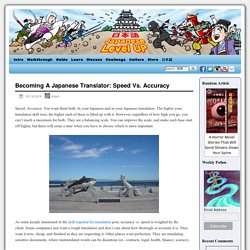
Accuracy. You want them both. Becoming A Japanese Translator: Finding Work. Have I convinced you to try your hand at translation?
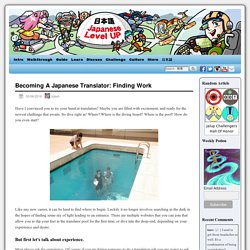
Maybe you are filled with excitement, and ready for the newest challenge that awaits. So dive right in! Becoming A Japanese Translator: The Ranks. You’d assume that once you enter the world of translation and professional translators, everyone would be on similar grounds.
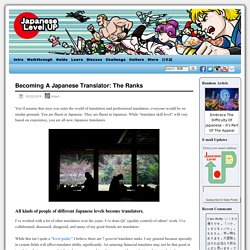
You are fluent in Japanese. They are fluent in Japanese. While “translator skill level” will vary based on experience, you are all now Japanese translators. All kinds of people of different Japanese levels become translators. Middlebury Institute of International Studies at Monterey. 1.
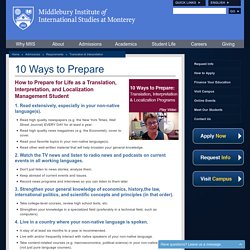
Read extensively, especially in your non-native language(s). Read high quality newspapers (e.g. the New York Times, Wall Street Journal) EVERY DAY for at least a year.Read high quality news magazines (e.g. the Economist), cover to cover.Read your favorite topics in your non-native language(s).Read other well-written material that will help broaden your general knowledge. 2.
The Realities and Benefits of Translation as a Full-time Job – An Introduction. This week we have a special guest article on translation by a professional in the field.
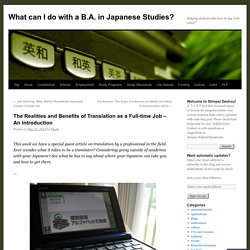
Ever wonder what it takes to be a translator? Considering going outside of academia with your Japanese? See what he has to say about where your Japanese can take you and how to get there. Japanese BA? The Realities and Benefits of Translation as a Full-time Job – An Introduction.